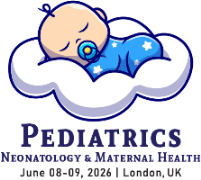
Ilaria farella
LUM - Libera Universita
Italy
Abstract Title:Supporting First-Time Mothers: The Effect of Prenatal Education on Breastfeeding Success and Postpartum Depression
Biography:
Ilaria Farella, RTT in Pediatric and Neonatology, is a researcher and pediatrician with an international academic background. She holds a medical degree and has specialized in pediatrics in Belgium, with additional training in pediatric nephrology at Paris Descartes University. She currently works at LUM University and is involved in neonatal and pediatric research, with a focus on nutrition. Dr. Farella has contributed to several studies on infant nutrition and development, particularly in relation to breastfeeding and early childhood health. Her research is internationally recognized, and she is dedicated to improving pediatric care globally.
Research Interest:
Introduction: Postpartum depression and breastfeeding difficulties are common challenges faced by new mothers. Prenatal education courses are designed to provide support and improve outcomes. This case-control study aimed to evaluate the impact of a prenatal education course on breastfeeding support and the management of postpartum depression. Materials and Methods: A total of 48 first-time pregnant women participated in the study, divided into two groups: 22 women attended a prenatal education course (Group 1), and 26 women did not (Group 2). The primary outcomes were postpartum depression risk, assessed using the PHQ-9 and EPDS scales, and breastfeeding self-efficacy, measured using the Breastfeeding Self-Efficacy Scale-Short Form (BSES-SF). Data on sociodemographic and obstetric factors were also collected. Results: Significant differences were found in several sociodemographic and obstetric variables between the two groups. Women in Group 1 were older (34.2 ± 0.7 years vs. 28.5 ± 1.0 years, p = 0.00007) and had a higher rate of planned pregnancies (77.27% vs. 34.62%, p = 0.003). Group 1 also had significantly higher exclusive breastfeeding rates at discharge (90.9% vs. 61.5%, p = 0.0192) and at 4-8 weeks postpartum (72.7% vs. 34.6%, p = 0.0084). However, no statistically significant differences were found in postpartum depression scores between the groups. PHQ-9 scores peripartum were Group 1: 6.45 ± 0.7 vs. Group 2: 4.85 ± 0.5, p = 0.2, and EPDS scores prepartum were Group 1: 7.91 ± 1.0 vs. Group 2: 6.27 ± 1.0, p = 0.6. Conclusion: Prenatal education courses significantly promoted breastfeeding success but did not show a significant effect on reducing postpartum depression risk. Further research is needed to identify other factors that may influence these outcomes and explore potential improvements in prenatal education programs.

